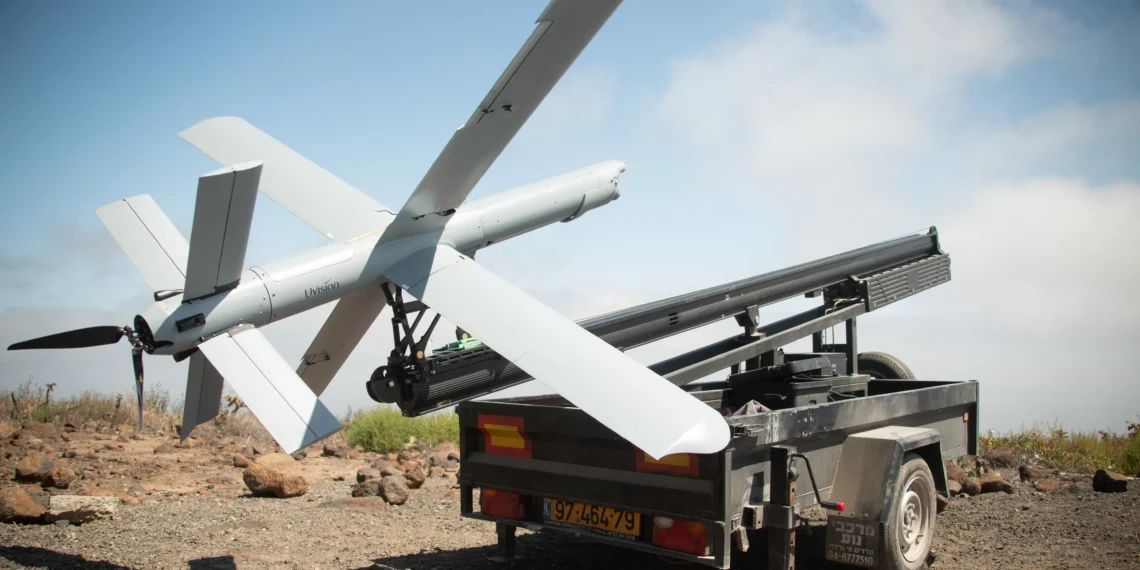The use of unmanned aerial vehicles (UAVs), commonly known as drones, has become a controversial topic in recent years. While they have been touted as a precise and efficient tool for military operations, the reality is that they have caused significant harm to innocent civilians. And now, the U.S. military is planning to expand its arsenal with a new type of drone – one that is cheap, lethal, and controlled by artificial intelligence (AI). This development has raised serious concerns about the future of warfare and the protection of civilian lives.
The Pentagon’s plan for the next drone war is to mass-produce kamikaze AI drones, which are essentially flying bombs. These drones will be equipped with advanced AI technology that will allow them to identify and attack targets without any human intervention. This means that they will be able to make decisions on their own, without any oversight or accountability. And with the ability to be produced at a low cost, the military sees these drones as a cost-effective solution for their operations.
But at what cost? The use of drones has already resulted in the deaths of countless innocent civilians, and the introduction of AI drones only increases the risk. These drones will not be able to distinguish between combatants and non-combatants, and their lack of human control means that they could potentially cause even more harm. The idea of machines making life and death decisions is a terrifying thought, and it goes against the principles of ethical warfare.
Furthermore, the use of AI drones raises serious questions about accountability and responsibility. In the event of a mistake or malfunction, who will be held accountable for the loss of innocent lives? Will it be the military personnel who deployed the drones, the manufacturers who produced them, or the AI technology itself? This lack of accountability is a dangerous precedent and could lead to a future where machines are given free reign to make decisions that have grave consequences.
The Pentagon’s plan for AI drones also raises concerns about the dehumanization of warfare. By removing human soldiers from the battlefield and replacing them with machines, we are distancing ourselves from the reality of war and its devastating effects. This could lead to a desensitization towards violence and a disregard for the value of human life. War should never be taken lightly, and the use of AI drones only serves to make it easier and more detached.
Moreover, the mass production of these drones could lead to an arms race between countries, with each trying to outdo the other in terms of technology and capabilities. This could result in a dangerous escalation of conflicts and an increased risk of global warfare. The use of AI drones also raises concerns about the potential for them to fall into the wrong hands. In the age of cyber warfare, the possibility of these drones being hacked and used for malicious purposes cannot be ignored.
It is clear that the Pentagon’s plan for the next drone war is a cause for concern. The use of AI drones not only puts innocent lives at risk but also has the potential to change the landscape of warfare as we know it. It is imperative that we address these concerns and have a serious discussion about the ethical implications of using such technology in warfare.
The U.S. military must prioritize the protection of civilian lives and adhere to the principles of ethical warfare. Instead of investing in more advanced and lethal weapons, efforts should be made to find peaceful solutions to conflicts. The use of drones should be strictly regulated, and there should be clear guidelines in place to ensure their responsible use.
In conclusion, the Pentagon’s plan for the next drone war is a dangerous and concerning development. The use of AI drones raises serious ethical, moral, and legal questions, and it is our responsibility to address them. We must not let technology dictate the course of warfare and must prioritize the protection of innocent lives above all else. The future of warfare should not be one where machines make life and death decisions, but one where diplomacy and peace prevail.







